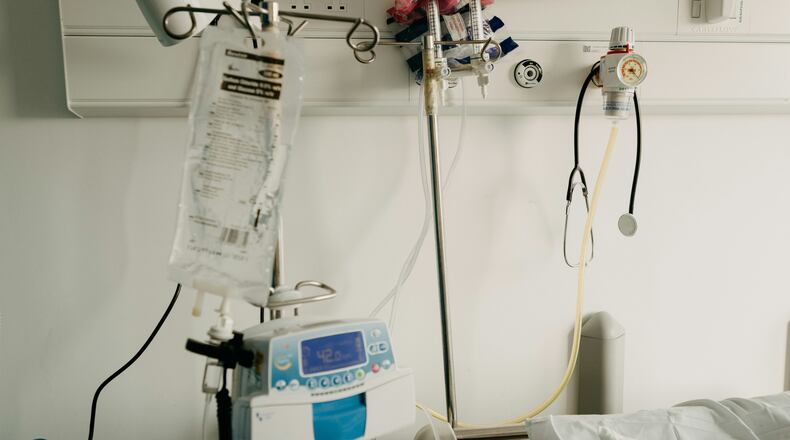“The disruption in the IV solutions supply chain has caused very real challenges in our state and across the nation,” ODH Director Dr. Bruce Vanderhoff wrote Friday in a letter to state health care leaders and stakeholders. “In Ohio, we are fortunate to have developed strong partnerships with our hospitals and other health care facilities that we have been able to leverage to respond swiftly and appropriately.”
The ODH has been coordinating closely with hospitals, regional health care coordinators, the Ohio Hospital Association and Ohio Pharmacy Services Center among others to ensure a statewide approach.
The ODH also initiated web-based data-reporting for IV fluid tracking through EMResource, a near real-time resource management program to maintain awareness of critical hospital impacts during incidents. The data reporting went live Oct. 4, with a requirement for all Ohio hospitals to report IV fluid data daily, Vanderhoff said.
“We have seen our hospitals engaging in more efficient methods of delivery and conservation measures aimed at responsibly managing IV fluid volume use, while maintaining the same level of care,” he said.
The state health department is encouraged by Baxter’s announcement on Wednesday that they are making significant increases in allocations of IV solutions. In addition, the U.S. Food and Drug Administration announced Wednesday that they are lifting some restrictions to allow companies with advanced compounding capabilities to potentially add more supply to health care facilities.
At the state level, the Ohio Board of Pharmacy has issued guidance to hospital pharmacies that it will allow the sale and shipment of IV and peritoneal dialysis solutions by additional out-of-state facilities.
“These developments should do much to help alleviate the current situation, and we are hopeful the supply will improve soon,: Vanderhoff wrote. “In the meantime, I will continue having regular, high-level coordination meetings between our ODH team, hospital leadership and the Ohio Hospital Association to ensure we maintain strong and consistent levels of collaboration until this situation is resolved.”
About the Author

